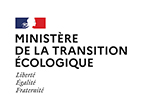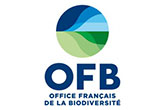[Call for proposals FRB-MTE-OFB] Opening of the call « Impacts on terrestrial biodiversity in the Anthropocene »
![[Call for proposals FRB-MTE-OFB] Opening of the call « Impacts on terrestrial biodiversity in the Anthropocene »](https://www.fondationbiodiversite.fr/wp-content/uploads/2021/07/AAP_FRB_MTE_OFB_2021_web.jpg)
As part of the implementation of the national “terrestrial biodiversity monitoring” programme carried out by the French Biodiversity Office (OFB), which aims to measure, identify and monitor the influence of human activities on biodiversity and the best practices to be promoted, the Ministry of Ecological Transition (MTE) and the French Foundation for Research on Biodiversity (FRB) are launching a call for research projects on the “Impacts on terrestrial biodiversity in the Anthropocene “. The call aims to characterize the positive, negative or non-existent impacts of human activities and induced pressures on the state and dynamics of terrestrial biodiversity.
The results of the research funded by the programme should help to strengthen the actions of society as a whole, to halt the decline of biodiversity and promote sustainable human development.
This call for proposals will allow the funding of:
- 3 data SYNTHESIS projects of three years – these projects should develop syntheses of ideas and/or concepts, analyses of existing data, and should focus on factors affecting the state, evolution and dynamics of biodiversity.
- 4 to 6 one-year SYNERGIE projects – these projects should provide complementary answers to a question that emerges from a research project that has been finalized or is underway, and should help stakeholders with indicators and practices to be promoted or abandoned to preserve biodiversity.
- 2 to 4 one-year SYSTEMIC MAP projects – a preliminary step to the “systematic review”, these projects will have to focus on pressure-impact links related to human practices in order to highlight whether the impacts on biodiversity are well established or suffer from a lack of data or literature.

